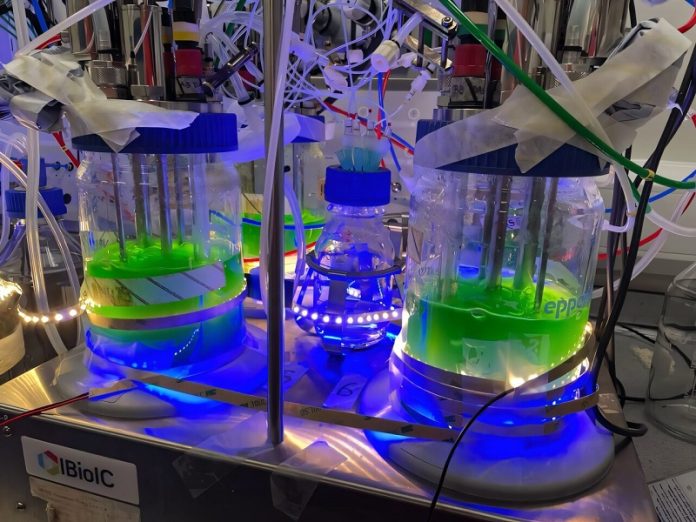
Scientists at The University of Manchester have made an exciting breakthrough in using cyanobacteria, also known as blue-green algae, to turn carbon dioxide (CO2) into sustainable materials like renewable plastics.
This research, published in Biotechnology for Biofuels and Bioproducts, could help create eco-friendly alternatives to fossil fuel-based products and support the move toward a carbon-neutral future.
Cyanobacteria are tiny organisms that use photosynthesis to convert sunlight and CO2 into organic compounds.
Unlike traditional methods that rely on crops like sugar or corn, cyanobacteria can transform CO2—one of the biggest greenhouse gases—into valuable materials without using agricultural resources.
Despite their potential, cyanobacteria have been limited by their slow growth and efficiency, making them challenging to use on a large scale. This new research helps overcome those challenges.
The research team, led by Dr. Matthew Faulkner, Dr. Fraser Andrews, and Professor Nigel Scrutton, focused on improving the production of citramalate, a chemical used to make renewable plastics like Plexiglas.
By carefully adjusting the conditions for growing cyanobacteria—such as light intensity, CO2 levels, and nutrients—they managed to increase citramalate production 23 times more than before.
In their experiments, the scientists used a strain of cyanobacteria called Synechocystis sp. PCC 6803.
Through a process called “design of experiment,” they identified the best conditions for the bacteria to produce citramalate efficiently. Their work resulted in a production rate of 6.35 grams per liter (g/L) in 2-liter reactors, with a daily rate of 1.59 g/L.
While scaling up to larger 5-liter reactors presented challenges, such as uneven light distribution, the study shows that these issues can be solved as production expands.
The benefits of this research go far beyond making plastics. Citramalate comes from two key metabolites—pyruvate and acetyl-CoA—which can also be used to create biofuels, pharmaceuticals, and other important products.
By improving the efficiency of carbon capture and converting CO2 into useful materials, this research supports efforts to fight climate change and reduce reliance on fossil fuels.
“This is about more than just cutting emissions,” said Dr. Faulkner. “It’s about creating a sustainable cycle where CO2 becomes the building block for everyday products.”
The team plans to refine their methods further and scale up production while maintaining efficiency.
They also aim to adapt their techniques to optimize other metabolic processes in cyanobacteria, unlocking even more possibilities for bio-based products.
This breakthrough brings us closer to a future where carbon emissions are turned into solutions rather than problems.
Source: University of Manchester.



